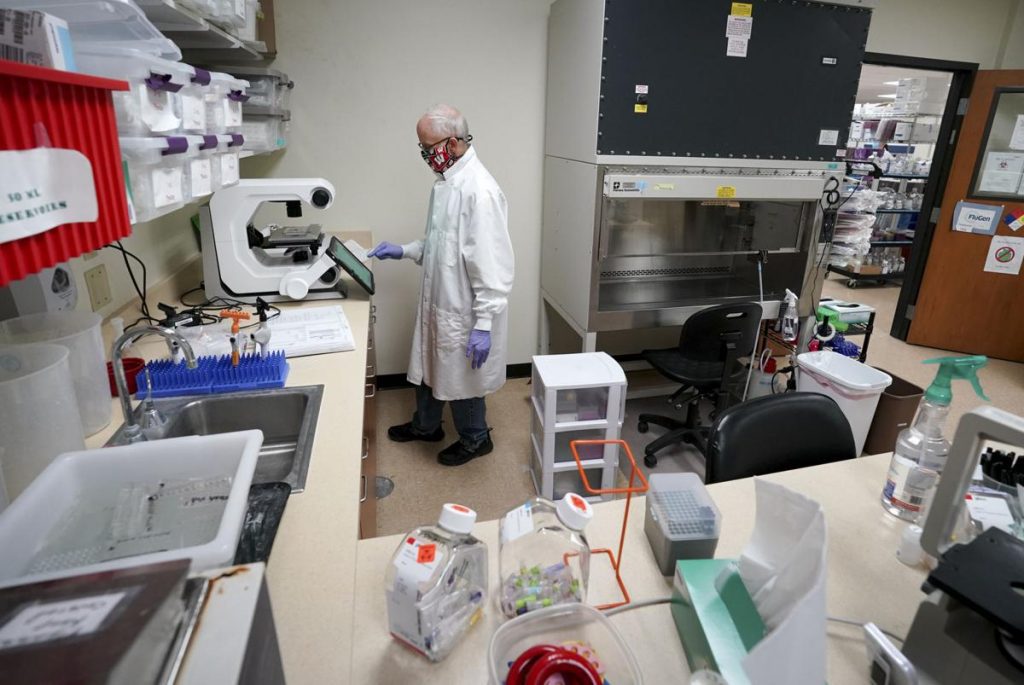02 Aug FluGen flu vaccine research ramps up as work on COVID-19 candidate slows

FluGen scientists, including Mike Moser, are working on two experimental vaccines, one for flu and another against the new coronavirus, which also might protect against flu. STATE JOURNAL ARCHIVES
Research on an experimental flu vaccine by Madison-based FluGen continues to expand, with a low dose showing some protection against a mismatched strain, a higher dose producing better immune responses and three new studies targeting older adults and children, groups among those most at risk from flu.
A low dose of the vaccine, based on research by UW-Madison scientists Yoshihiro Kawaoka and Gabriele Neumann, showed benefit in a study that simulated the mismatch that frequently occurs when flu strains circulating in winter don’t match those in the annual vaccine.
In the study, conducted in Belgium, about 50 people ages 18 to 55 received FluGen’s intranasal vaccine, based on a flu virus from 2007. Another 50 got a placebo. Both groups were exposed to a flu virus from 2014-15.
Among those who got the vaccine, 48% developed antibodies to the vaccine and 27% had antibodies to the mismatched flu from seven years later, according to results published last week in the Journal of Infectious Diseases.
Among those with antibodies to the mismatched strain, 38% were infected by that flu, compared to 71% among those receiving the placebo. Those vaccinated had reduced illness, researchers said.



